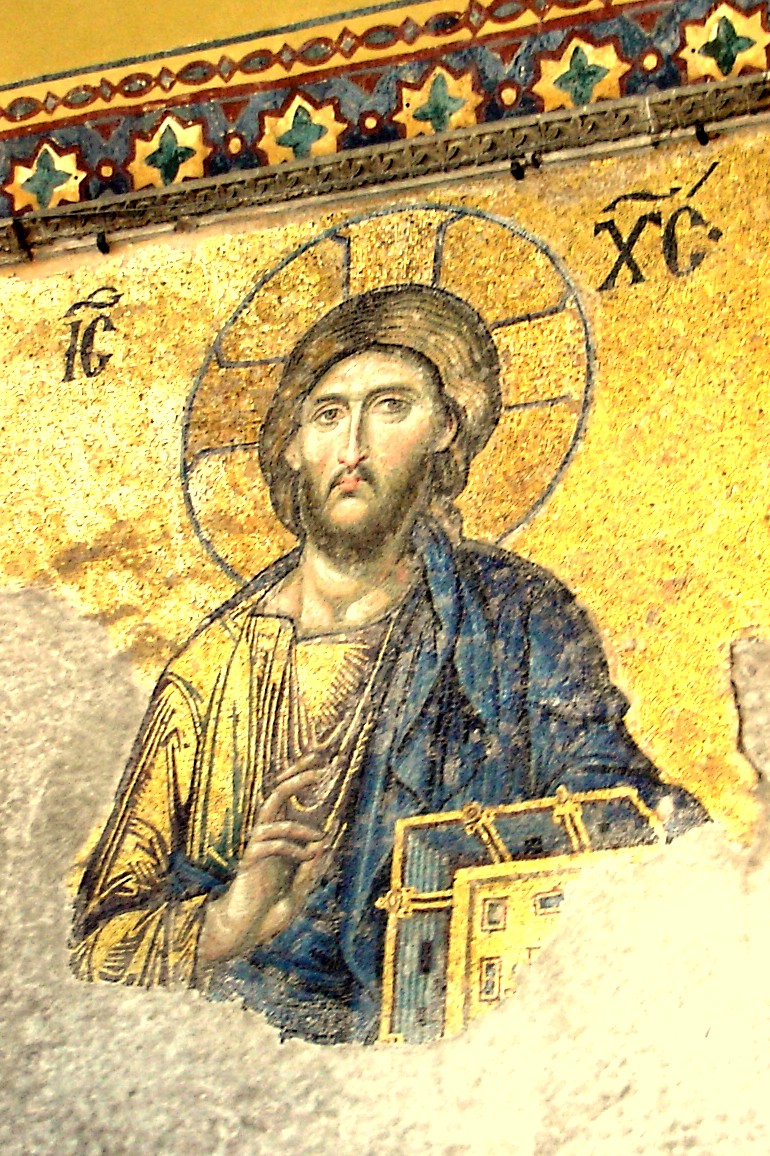5 Dec. Who was the 'Messiah' the Jews expected?
"Since the people were hoping for the Christ [the 'Messiah' or 'the anointed one'] to come, they wondered if John might be the one. John answered everyone, 'I baptise you with water; but there is one coming who is greater than I am... He will baptise you with the Holy Spirit and fire'."
"He will come ready to clean the grain, separating the good grain from the chaff. He will put the good part of the grain into his barn, but he will burn the chaff with a fire that cannot be put out.'"
"And John continued to preach the Good News, saying many other things to encourage the people. But John spoke against Herod [Antipas], the governor [of Galilee], because of his sin with Herodias, the wife of Herod's brother [Philip, the ruler of Iturea and Trachonitis], and because of the many other evil things Herod did. So Herod did something even worse; he put John in prison."
(Luke 3:15-20)

In the Christmas story, we hear many references to the coming of the ‘Messiah’. Many people are familiar with Handel's oratorio, 'The Messiah', often sung by choirs during the Christmas season. But just who was this ‘Messiah’ that many Jews in Roman Judaea expected?
In New Testament times, many Jews were eagerly awaiting the coming of a ‘Messiah’ (Hebrew) or ‘Christ’ (Greek), meaning ‘the Anointed One’. There were many views on what the Messiah would be like, but three main ideas dominated most people’s expectations of ‘the one who is to come’:
1. A great spiritual leader – a prophet like Moses.
Many Jews at this time expected that the Messiah would be ‘a prophet like Moses’. Moses was revered for having led the people of Israel, under God’s guidance, out of slavery in Egypt in c.1447 BC.
In the Jewish scriptures, Moses promised the people that “The LORD your God will give you a prophet like me, who is one of your own people” (Deuteronomy 18:15). Many expected the Messiah would be a great spiritual leader like Moses, who would lead the people to a new freedom – a new ‘Exodus’.
2. A powerful military leader – a king like David
According to the prophet Isaiah, the Messiah would be a powerful military leader descended from Israel’s most successful warrior, King David: “He will rule as king on David’s throne and over David’s kingdom. He will make it strong by ruling with justice and goodness from now on and forever” (Isaiah 9:7).
The prophet Ezekiel, revealing the will of God, stated, “Then I will put over them one shepherd, my servant David” (Ezekiel 34:23) “My servant David will be their king, and they will all have one shepherd” (Ezekiel 37:24). Micah prophesied that this mighty ruler would be born in Bethlehem, the birthplace of King David (see Micah 5:2).
3. A supernatural leader – the ‘Son of Man’
In the opinion of many people, the Messiah would be a human being (a ‘son of man’), but with something of an ethereal or heavenly dimension.
In his dream, the prophet Daniel saw someone ‘like a son of man’ – “someone who looked like a human being coming on the clouds in the sky… He was given authority, glory and the strength of a king. People of every tribe, nation and language will serve him. His rule will last for ever, and his kingdom will never be destroyed” (Daniel 7:13-14).
To many Jews, Jesus of Nazareth did not appear to be the 'Messiah' because he did not fulfil their own expectations of the promised 'Christ'. Knowing that he was brought up in Galilee, some believed he could not be descended from David or have been born in Bethlehem (see John 7:40-44 & Matthew 13:55-57).
Many Jewish religious leaders felt that a man who challenged their interpretation of the Sabbath laws (see Mark 2:23-28 & Matthew 12:9-14) and associated with those who were ‘unclean’ under the Law of Moses could not be the expected prophet (see Mark 2:13-17). Others saw his claims to a special relationship with God as ‘blasphemy’ (profound disrespect for God) (see Matthew 9:1-3, 26:63-68, Luke 5:17-21 & John 8:48-58).
It was one of his closest followers, Simon Peter, who first recognised that Jesus really was the Messiah, the 'anointed one' of God (see Mark 8:27-30). But it was only after his resurrection from the dead that many others began to worship Jesus not only as the 'Christ', the ‘Son of Man’, but as the Son of God himself (see Matthew 28:8-9, Luke 24:50-53, & John 20:26-31).
The photo shows a mosaic portrait of Jesus the 'Christ', the 'Messiah', in the church of Hagia Sophia in Istanbul.
You can read more about the Messiah @ https://www.thebiblejourney.org/the-bible-journey/2-john-the-baptists-journeys-b/johns-message/
